The Gifts of Strangers
What do strangers, cranberries, and beef have in common? Author of Time for Cranberries & participant in the On the Farm Author Experience, Lisl Detlefsen writes about being inspired to share the story of agriculture with others.
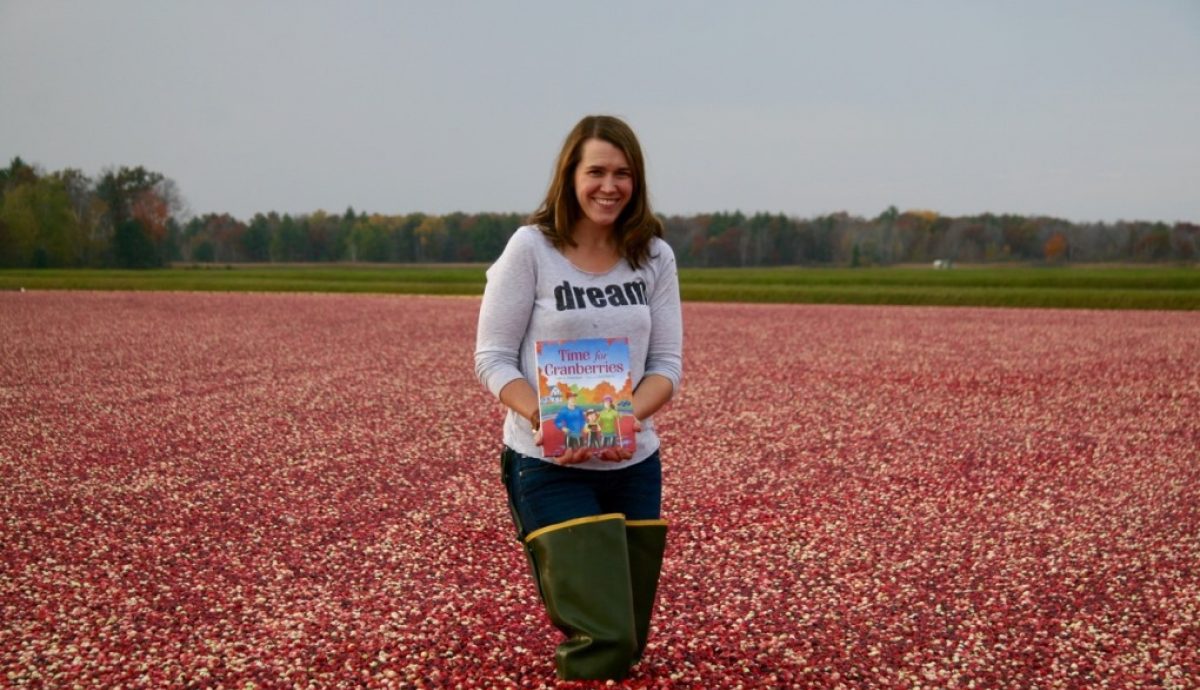
I love people watching. I also secretly love talking to strangers when I travel, especially on airplanes and in airports. Rest assured, if you are checking your e-mail or listening to music, I will leave you to your own devices. Otherwise, I will likely look for a way to start a conversation, mostly because I enjoy learning about people, but also because I enjoy sharing what I do. Many people have never talked to someone involved in children’s writing or in agriculture. Since I am involved in both, I delight in talking about children’s books, my family’s cranberry marsh, or, if pressed, about my children’s book about cranberries. Again, if asked, I will show you pictures of my family’s cranberry marsh and explain that yes, those Ocean Spray commercials really are filmed on real cranberry farms with real fruit, and no, cranberries don’t grow in water, we use water as a harvesting technique.
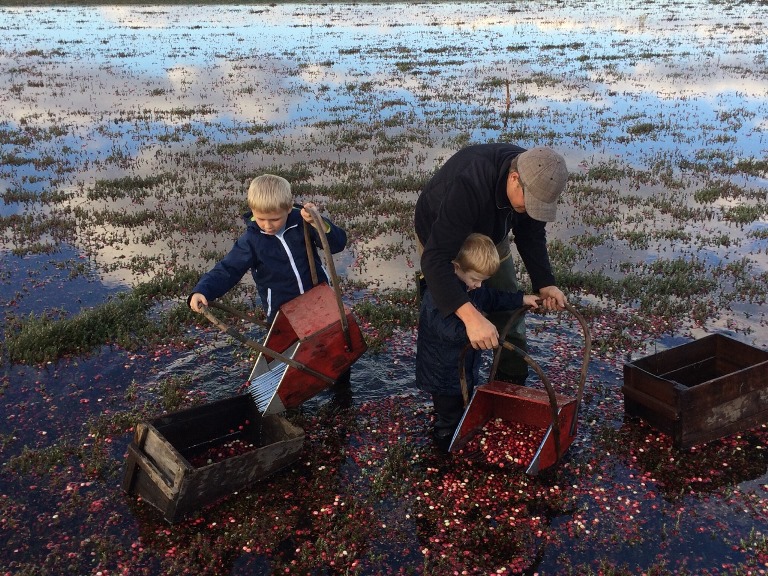
When my second plane home from the American Farm Bureau Foundation for Agriculture’s On the Farm Author Experience was delayed in Detroit, I was given ample time to enjoy the company of strangers. Thanks to Matt Rush’s AFBFFA Flapjacks with the Foundation keynote about the importance of sharing the story of American farming with others, I felt extra encouragement to tell people how cranberries are grown and harvested. I heartily agree with him that farmers have an opportunity and a responsibility to help educate people about where their food comes from. So, while waiting for my flight, I talked to a college student who had grown up near Paris and a few fellow Wisconsites who had driven past, but never stopped at, a cranberry marsh.
Of course, these conversations with strangers appeal to me as a writer, too. I enjoy hearing their stories and finding out where they’re flying and why. I like hearing about what they do for a living and love meeting dads and moms who can’t help but show me pictures of the adorable little people who are waiting for them at home. (Bonus points for photos of adorable kids enjoying a great book!) I love finding out what is different about our lives and what we have in common, be it unique or universal.
Several months before I sold my first book, I was delayed in this same Detroit airport due to winter weather. Once on board the plane, I started talking to a kind man who had been in the military and is now a motivational speaker. He could tell I was anxious (it was, shockingly, my first time flying by myself and I had reluctantly left my two young sons to attend a workshop about writing books about agriculture). Even after we finally took off, he kept me calm by keeping the conversation going. As the plane tipped wildly up and down in the storm, I told him about how I’d always wanted to be a children’s book writer but I wondered if it was foolish to continue chasing that dream. I’ll never know what made him so confident, but when the plane landed, he shook my hand and told me he knew I’d get published. Ever since, I’ve thought of this stranger with each bit of writing success and wish I could tell him how much his words meant to me.
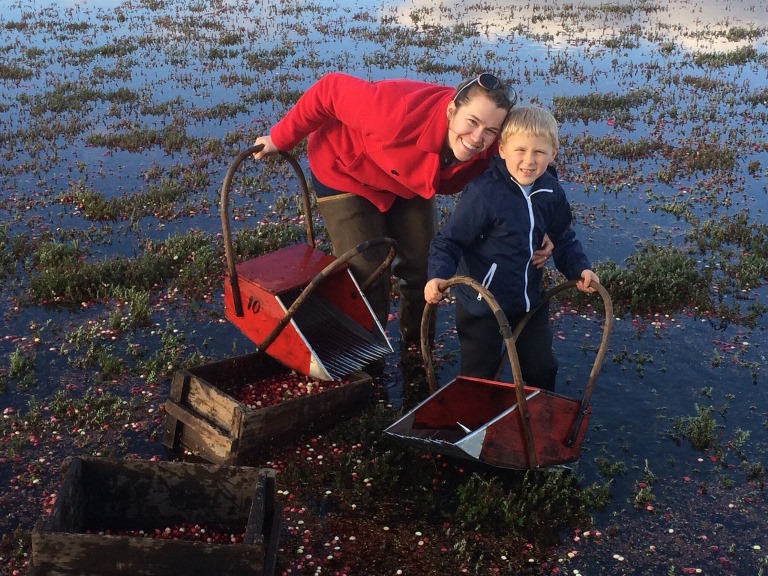
The gifts of strangers played a huge part in the AFBFFA Author Experience as well. Eleven other authors, ten of whom I’d never met, gathered to learn about cattle ranching and to discuss the business of writing books related to agriculture. While all of us came from different parts of the country, bringing with us our own unique opinions, connections to agriculture, and perspectives about food and farming, tempers were never lost and respect was always given. In a matter of four days, strangers became colleagues, resources, and friends.
The same can be said for the Farmer Q&A Panel during the Author Experience. All of the farmers who came to answer our questions were well-educated, well-spoken, and ready to have an open and honest discussion. Moreover, it was abundantly clear that each and every farmer was dedicated to feeding the world and being a steward of the land. None of this should have surprised me since I live in a farming community and see these traits in my neighbors and my own family. However, to see this as the prevailing theme across states and generations and type of farming was profound. The bottom line is this: As farmers, we care about the food we grow because we eat it, too. We care about the land we farm on because it is our home and, hopefully, the home of our families for generations to come. Even though most of our consumers are strangers, we recognize and value the connection we share through our food.
Several cranberry conversations with strangers later, I made my way home to the marsh from Detroit. I brought back much more than just my notes, though. The On the Farm Author Experience was a wonderful reminder that the gifts of strangers can take many forms: in the knowledge we share, in the connections we make, and in the food we eat. I look forward to discovering what gift I’ll give or receive from a stranger the next time I find myself on another airplane.
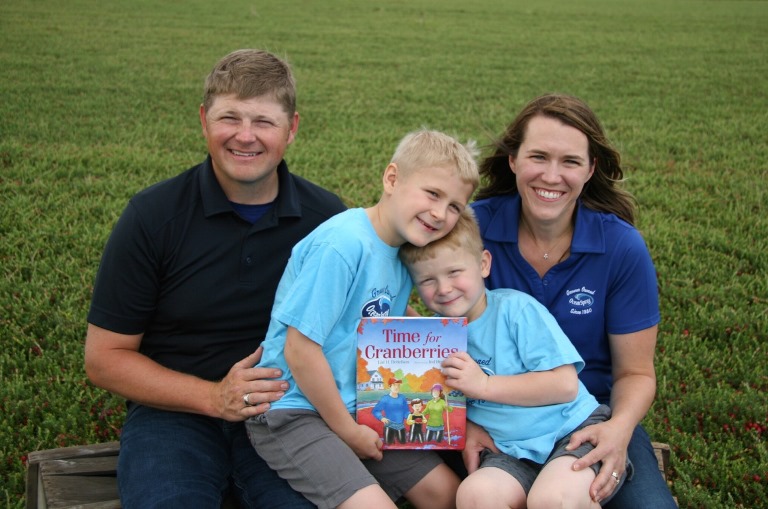
Get Lisl's Books, Right This Very Minute & Time for Cranberries
Lisl is a children’s book author and lives on a family-owned cranberry marsh in Wisconsin. She also gives programs on writing and cranberries to students in grades K-8 at schools and libraries. For more information or to visit her on the web, go to lislhdbooks.com.
Read more inspiration about telling the story of agriculture.



